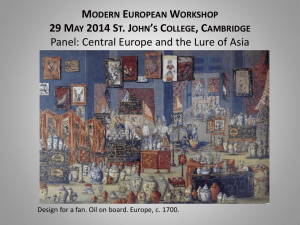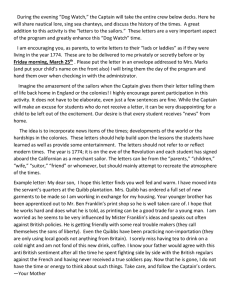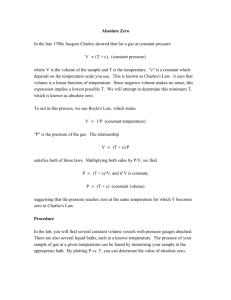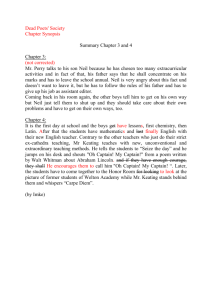E H S A
advertisement
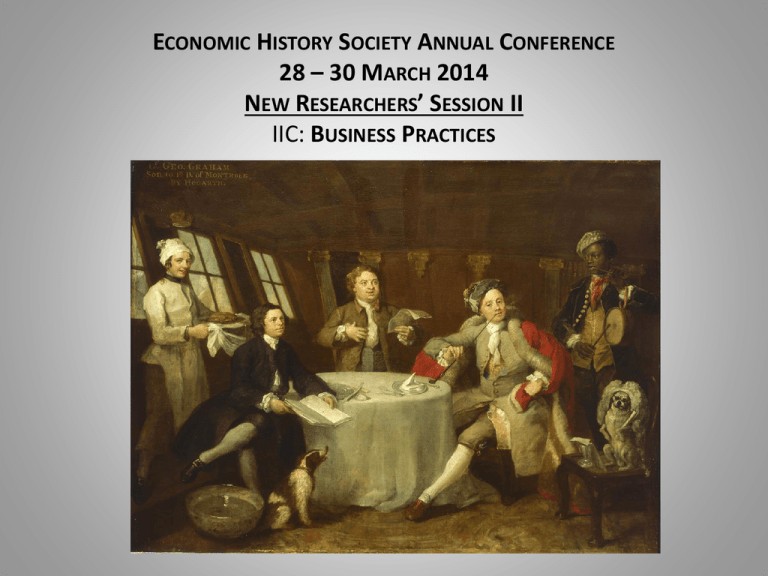
ECONOMIC HISTORY SOCIETY ANNUAL CONFERENCE 28 – 30 MARCH 2014 NEW RESEARCHERS’ SESSION II IIC: BUSINESS PRACTICES The principal-agent problem revisited: supercargoes and commanders of the China trade Meike Fellinger (University of Warwick) m.fellinger@warwick.ac.uk Twitter use welcome Part I: Historiographical background Part II: Case study on Charles Irvine Conclusions Charles Irvine of Drum (1693-1771) Born and died in Aberdeen After 1715 Jacobite exile in France Merchant in Rouen in the 1720s Entered the Indies Trade via the Ostend Company Between 1733-46 made six voyages as supercargo for the SEIC Became major wholesale merchant and tea smuggler Thank you for your attention! The research for this presentation was generously funded by the European Research Council Advanced Grant Scheme If you have any further questions, please contact: m.fellinger@warwick.ac.uk Swedish East India Company ship Three Crowns 1736/37 Appointment 1st supercargo 2nd supercargo 3rd supercargo 4th supercargo Personal assistants Captain Captain First Pilot Second Pilot Third Pilot Fourth Pilot Captain's assistant Captain's assistant Captain's assistant Chaplain Boatswain Surgeon Carpenter 2nd carpenter Totals: Name Privilege cargo/last Equivalent in cases Commission on net profits in % Charles Irvine 2 1/2 20 2 1/2 John Pike 2 16 2 Gerard Barry 1 8 1 Charles Hofwardt 1/2 4 1/2 together 3/8 1 previously agreed sum Petter von Utfall 1 8 0 Thomas Neilson 1 8 0 Dyrik Aget 3/4 6 0 Pieter Dens 1/2 4 0 Thomas Ouchterlony 1/4 2 0 Martinus Mars 1/8 1 0 Jacques von Utfall 7/8 1 0 Petter van Kampe 7/8 1 0 Alexander Cumming 7/8 1 0 Sven Frisk 1/8 1 0 Christian Stare 1/8 1 0 Jonas Munck 1/8 1 0 Jacques Rose 1/8 1 0 Mungo Murray 1/2 0 13 1/8 85,5 6 Private commissions Model in ivory of a Chinese pleasure barge, mid-eighteenth-century, at Osterley Park. Copyright: NTPL/Dennis Gilbert. Armorial and other custom-made Chinese porcelain, reverse mirror paintings
